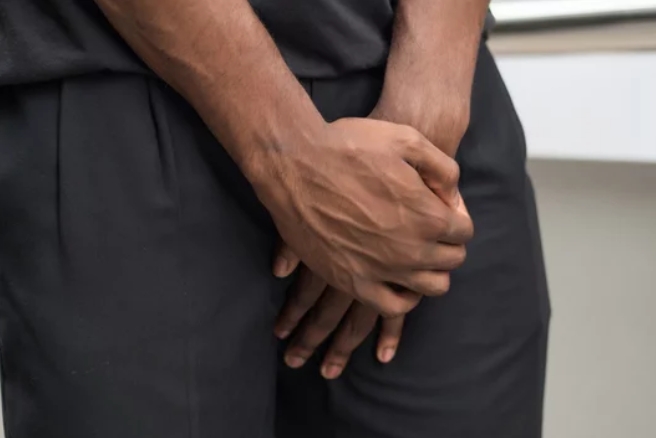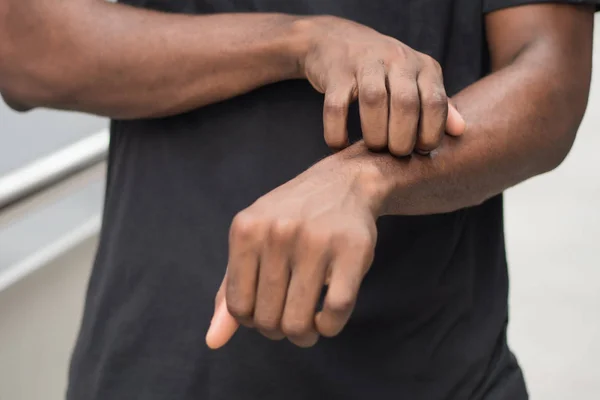Have you ever been on a trip, and you needed to empty your bladder and had no option but to go to the restroom? It’s an experience I’ve had a few times, and I’m guessing you’ve had it as well. However, when you arrive at the restroom, you find it difficult to pee. This could be attributed to a couple of factors, but most times, when you’re convenient peeing in a restricted or private toilet but cannot, or find it difficult to do so in public toilets or crowded restrooms or generally outside, it is usually diagnosed as a condition referred to as the shy bladder syndrome.
The Shy Bladder Syndrome
Shy bladder syndrome, also known as paruresis, is a social anxiety disorder that makes urinating in public restrooms or in the presence of others difficult or impossible.
Paruresis, also known as urophobia, psychogenic urinary retention, and bashful bladder syndrome (BBS), is thought to be the second most prevalent social phobia behind the dread of public speaking. Some studies estimate about 25 percent of people in the United States have some degree of paruresis. The muscles in the bladder and urinary system tense up as a result of anxiety, making it difficult to urinate in particular situations or places. This frequently includes using public restrooms or using another person’s bathroom.
Peeing in front of others can be exceedingly uncomfortable for people who are already self-conscious, ashamed, or shy. Being around other people while trying to urinate, feeling rushed or pressurized, being forced to pee, and worrying about the way they smell or the sounds they make while peeing are some of the conditions that trigger people with shy bladder. These worries can exacerbate anxiety and make people stiffen up.
Effects of Paruresis
People of all genders and ages, including children, can be affected. While it is a psychological result of anxiety, it is important to manage this condition because it can cause urinary problems as well as work and interpersonal troubles.
Severe paruresis, if left untreated, can have a significant negative influence on one’s personal, social, professional, and general quality of life. People may find it hard to be away from home for more than a short time, avoid travelling, getting together with friends, going to public places, or going to work as a result of it. It might even limit such a person’s choice of jobs. However, paruresis can be controlled better when a correct diagnosis is made and treatments are applied.
Diagnosis
During a medical examination, the physician will run several tests to ensure that the urinary system is in good working order. When a person can urinate effectively alone at home but experience difficulty in public, it is frequently a sign of paruresis. Being an anxiety disorder, the doctor may recommend taking tranquilizers or antidepressants for a brief period of time to help a patient relax. However, it is critical that these medications be taken as prescribed. Self-catheterization is sometimes recommended as well.
Treatments
Therapy and hypnosis are used by healthcare experts and psychologists to address this condition. This will help teach the subconscious to overcome the anxieties and issues that might be keeping a person from urinating in public. Graduated exposure therapy is one of them, and it has been proven to be successful. This is a step-by-step process that entails attempting to urinate in progressively difficult locations, from the simplest, such as being alone at home, to the most difficult, such as using a busy public restroom. This therapy is done with a pee partner (usually a relative or close friend) who will help vary the distance between the person and them while the person tries to urinate.
About eight people out of every ten with paruresis are usually helped by graduated exposure therapy. Graduated exposure therapy is more effective when practised frequently, such as three or four times per week. It is also important to drink plenty of water to ensure that the bladder is fully hydrated before a practice session.
Conclusion
Finally, you should keep in mind that, despite the efforts of healthcare professionals and psychologists, paruresis, like other disorders and diseases, can only be overcome with the patient’s active participation and inclusive effort. It’s important to remember that it’s all psychological; it’s all in your head. Determine you want to overcome the syndrome, avoid negative thoughts like “you are abnormal or imperfect,” also do not pressure yourself. You may also consider joining a paruresis support group which can gradually help you overcome the syndrome.
AUTHOR’S BIO:
Oluwaseyi Muyiwa Egbewande is an undergraduate student pursuing a Doctor of Pharmacy degree at the University of Ilorin, Nigeria; a student researcher and an online content writer.
Collins Nwokolo is a human physiologist, writer and health enthusiast. He loves writing helpful articles on health and fitness, which he enjoys sharing with everyone.









